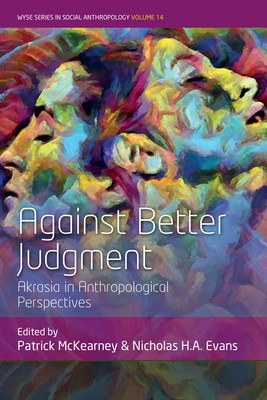
- We will send in 10–14 business days.
- Publisher: Berghahn Books
- ISBN-10: 1805390007
- ISBN-13: 9781805390008
- Format: 15.2 x 22.9 x 1.3 cm, hardcover
- Language: English
- SAVE -10% with code: EXTRA
Against Better Judgment (e-book) (used book) | bookbook.eu
Reviews
Description
Anthropologists have long explained social behaviour as if people always do what they think is best. But what if most of these explanations only work because they are premised upon ignoring what philosophers call 'akrasia' - that is, the possibility that people might act against their better judgment? The contributors to this volume turn an ethnographic lens upon situations in which people seem to act out of line with what they judge, desire and intend. The result is a robust examination of how people around the world experience weaknesses of will, which speaks to debates in both the anthropology of ethics and moral philosophy.
EXTRA 10 % discount with code: EXTRA
The promotion ends in 18d.17:57:46
The discount code is valid when purchasing from 10 €. Discounts do not stack.
- Publisher: Berghahn Books
- ISBN-10: 1805390007
- ISBN-13: 9781805390008
- Format: 15.2 x 22.9 x 1.3 cm, hardcover
- Language: English English
Anthropologists have long explained social behaviour as if people always do what they think is best. But what if most of these explanations only work because they are premised upon ignoring what philosophers call 'akrasia' - that is, the possibility that people might act against their better judgment? The contributors to this volume turn an ethnographic lens upon situations in which people seem to act out of line with what they judge, desire and intend. The result is a robust examination of how people around the world experience weaknesses of will, which speaks to debates in both the anthropology of ethics and moral philosophy.


Reviews